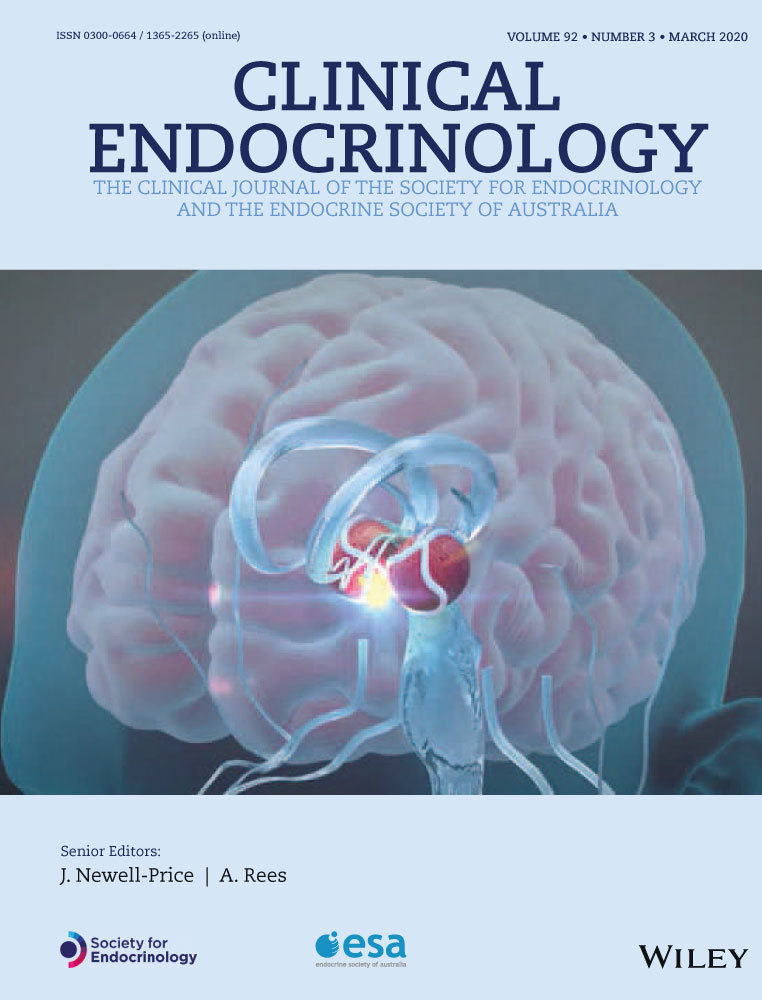Thyroid disorders in programmed death 1 inhibitor-treated patients: Is previous therapy with tyrosine kinase inhibitors a predisposing factor?
Abstract
Background
Programmed death 1 (PD-1) inhibitors are frequently associated with thyroid-related adverse events (TAEs), but many aspects remain unclear. This study aims to evaluate the incidence and characteristics of such events and to find any predictive factor for its development.
Methods
We retrospectively analysed data from patients with advanced solid tumours (non-small-cell lung carcinoma, renal cell carcinoma, metastatic melanoma) treated with PD-1 inhibitors (nivolumab, pembrolizumab) in Oncology Unit B, Policlinico Umberto I of Rome, from June 2015 to December 2018. All patients underwent baseline thyroid function evaluations repeated monthly.
Results
The cohort consisted of 126 patients (66.7% male, mean age 66.4 ± 9.7 years). One hundred and seven received nivolumab and 19 pembrolizumab. Twenty-three per cent of patients experienced TAEs (mainly CTCAE grade 1), with hypothyroidism in 15.1% (subclinical: 11.9%, overt: 3.2%) and hyperthyroidism in 8.0% (subclinical: 4.8%, overt: 3.2%). Median time to TAE onset was 8.7 ± 6.8 weeks (10.4 ± 7.6 weeks for hypothyroidism, 5.4 ± 3.0 weeks for hyperthyroidism). Most TAEs (89.7%) appeared within the first 3 months, none after 8 months. Most hypothyroid patients (63.2%) had previously been treated with a tyrosine kinase inhibitor (TKI). Logistic regression analysis showed that pretreatment with a TKI was a major predisposing factor for the development of hypothyroidism (OR 9.2, 95% CI: 1.4-59.9, P = .020).
Conclusions
TAEs are common during anti-PD-1 therapy and usually occur within the first 3 months of treatment. This is the first study evaluating the impact of previous oncologic therapies on TAEs, identifying TKI as a major risk factor for the development of hypothyroidism in patients treated with anti-PD-1.
CONFLICT OF INTEREST
The authors declare that there is no conflict of interest regarding the publication of this article.
Open Research
DATA AVAILABILITY STATEMENT
The data that support the findings of this study are available on request from the corresponding author. The data are not publicly available due to privacy or ethical restrictions.




